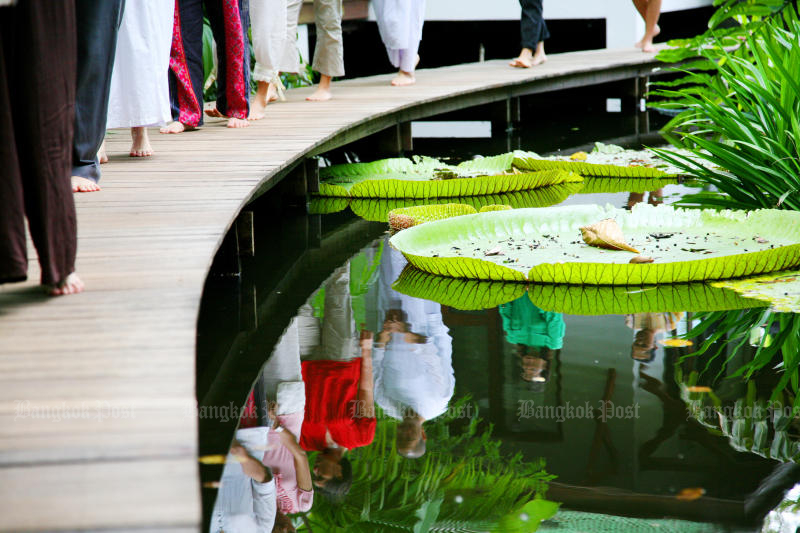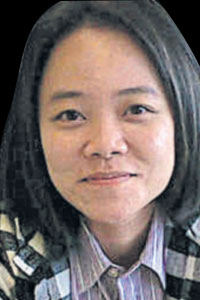
The Communicable Disease Committee in Chiang Mai ordered two more places to close last week due to the spread of Covid-19.
One of them is a dhamma centre located in the Muang district, which will be closed for 14 days.
According to news reports, nine people were found infected with the coronavirus at the dhamma centre and the chances of the infection spreading further are quite high.
The dhamma centre posted an announcement on its Facebook page, saying that there have been no activities at the centre for more than five months and that it had strictly followed all state disease prevention protocols. However, an infected member of the centre had gone in for a visit, which led to the emergence of mini Covid-19 cluster inside the centre itself.
So from now until Aug 3, no one is allowed to enter the premises. Members of the dhamma centre are not allowed to travel outside the province and all gatherings are prohibited. At the same time, district officers are ordered to examine all dhamma centres in their neighbourhood and carry out random Covid-19 screenings.
Temples, dhamma centres and sites with religious activities have mostly fallen off the radar when it comes to state and local preventive measures against Covid-19. Last year, when the Bangkok Metropolitan Administration (BMA) issued an order to temporarily close 34 locations, temples and dhamma centres were not included in the announcement. Activities in those places were however treated as public gatherings and therefore banned. Nonetheless, the locations could remain open for essential ceremonies such as funerals, cremations and so forth.
So now that new clusters among dhamma practitioners are being reported, many have started to question if it is too late to lock the stable when the horse has been stolen.
The Chiang Mai dhamma centre is not the only place where a new Covid-19 cluster has been found. Earlier, in the Koh Chang district of Trat, public health officers carried out active case findings and urged people who had visited a dhamma centre in the area from June 26 to July 10 to look for possible Covid-19 symptoms or test for Covid-19 at a hospital in their neighbourhoods after many members of the dhamma centre were found to be infected.
Also in April, a cluster of 42 people including nuns and other dhamma practitioners in Chiang Mai tested Covid-19 positive after an infected person participated in a dhamma centre prayer and other activities before returning home. Almost everyone joining the sessions was found to have contracted the novel coronavirus. All the infected were transferred to a field hospital in the area for treatment.
Earlier this month, out of 760 people screened for Covid-19, almost 50 people from Pathum Wanaram Temple in Bangkok were found to be infected. Besides, funeral clusters were also reported in Nakhon Si Thammarat, Krabi and Ayutthaya provinces.
Can we label such a phenomenon as "dhamma clusters"? Perhaps yes, although it's quite a paradox when dhamma and all the good deeds should instead keep people safe.
Setting aside all these unfortunate events, there are many lessons to be learned from these dhamma clusters.
First, temples, dhamma centres and places that carry out religious activities are public locations, which means they welcome people from all walks of life regardless of gender, age, origin with little to no knowledge of what they do, where they go, and whom they are in contact with.
Although these sanctuaries of the soul cannot be closed officially, disease prevention measures and protocols must strictly be implemented. At the peak of a pandemic, these places must welcome as few visitors as possible or only when most necessary. In cases like funerals, the number of visitors must be limited. Visitors must be screened and monitored very carefully.
With new infections hitting five-digit figures on a daily basis, dhamma practitioners should also rethink their practices. Praying and meditation can be good for people's weary souls at this moment but for the sake of public health, they should be carried out at home. A Zoom or Microsoft Teams session won't hurt.
Merit making is benevolent. However, that alone cannot save us from the continuing pandemic. And after all, too much of a good thing is definitely not good.
Arusa Pisuthipan is the editor of the Life section of the Bangkok Post.
